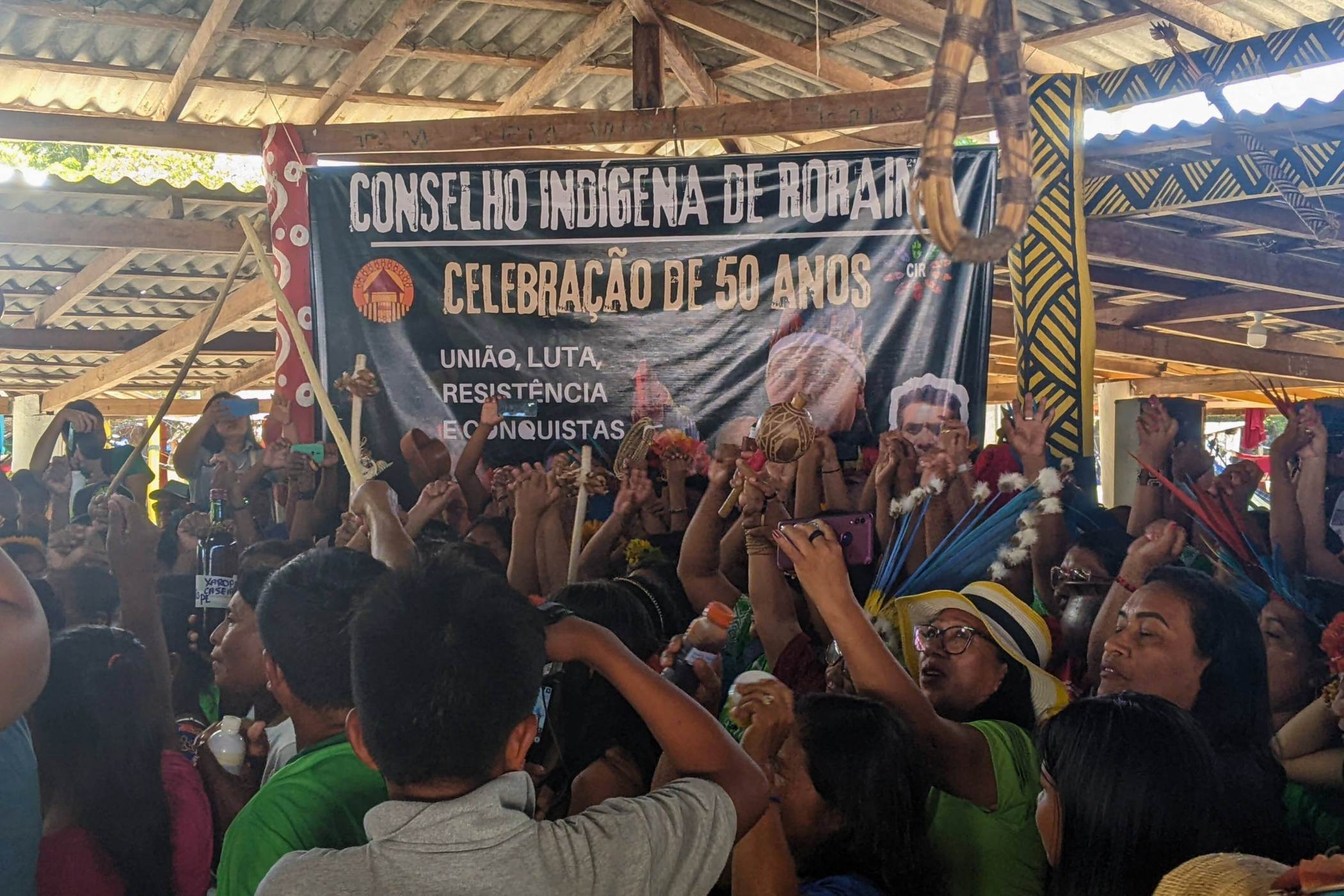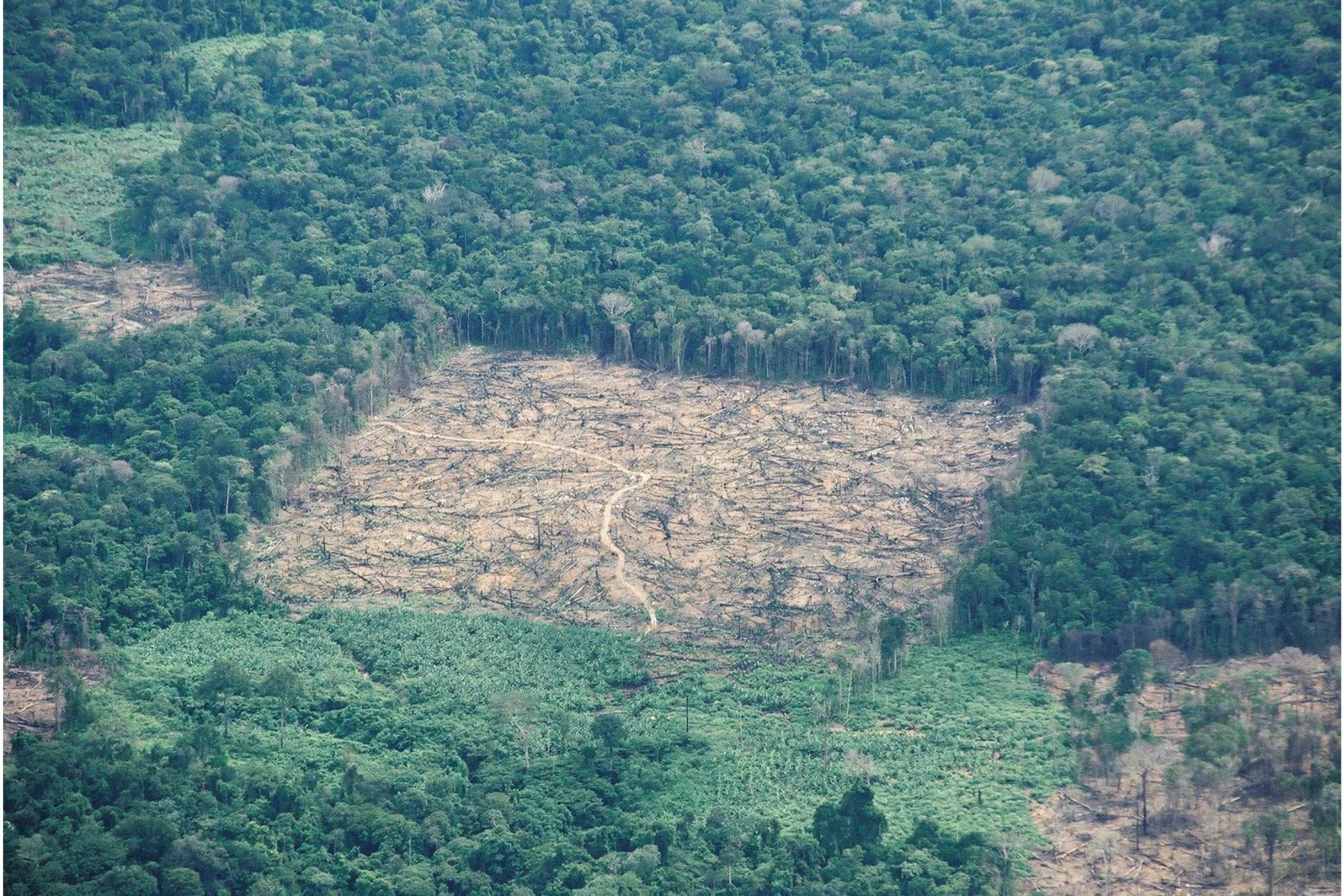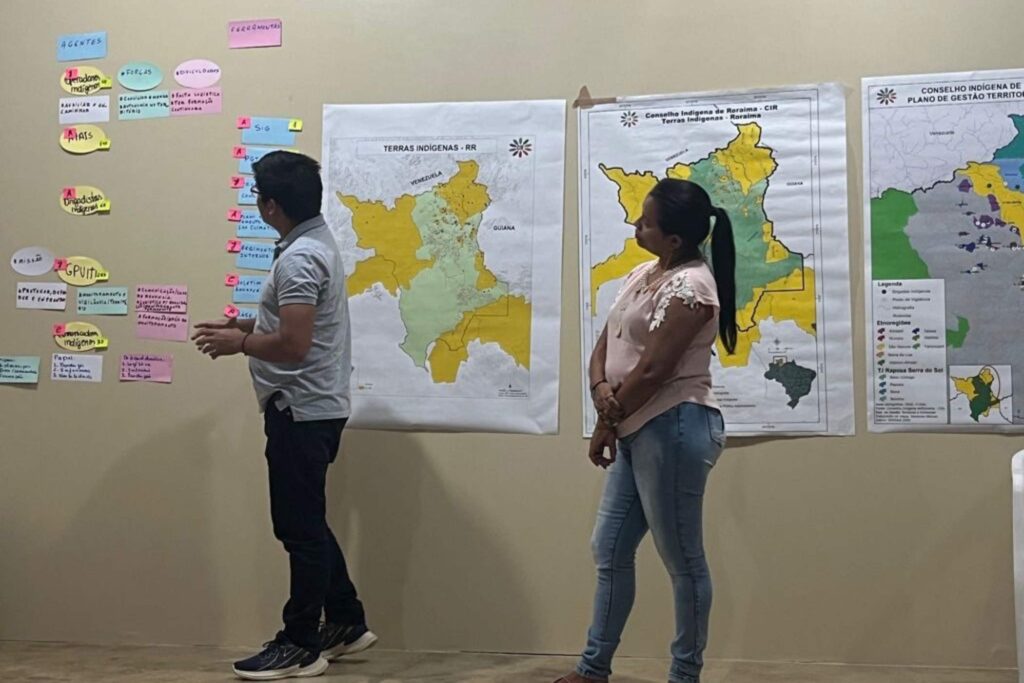The Arapuá Indigenous community holds an assembly with leaders from different areas to strengthen their community and honor their resilient heritage.
IMAGE CREDIT: Ascom/CIR
- Rainforest Foundation US (RFUS) held a joint workshop in partnership with the Roraima Indigenous Council (CIR) focused on integrating CIR’s diverse departments, and promoting strengthened governance and collaboration.
- RFUS and CIR’s partnership spans 20 years, demonstrating a deep commitment to Indigenous sovereignty and forest protection.
- In 2024, RFUS will develop a forest monitoring program in the Wai-Wai Territory, situated along the Guyanese border.
In a recent collaboration with the Roraima Indigenous Council (CIR – Conselho Indígena de Roraima) in Brazil, Rainforest Foundation US (RFUS) reaffirmed its organizational commitment to a core priority: Institutional strengthening through enhancing governance, communications, and administrative capacities of Indigenous peoples’ organizations.

CIR is one of the largest Indigenous organizations in Brazil, and has worked for more than 50 years to defend Indigenous rights and strengthen the autonomy of Indigenous peoples in Roraima, a state bordering Venezuela and Guyana in the Northern Amazon.
Roraima has the highest percentage of Indigenous peoples, and 46% of the area lies within demarcated Indigenous lands. However, of Brazil’s top ten Indigenous territories most threatened by deforestation, half are in Roraima. Deforestation increased by 122% from 2019 to 2021, driven by the advancement of agribusiness, land grabbing, timber theft, and especially illegal mining. In 2022 alone, the last year of Jair Bolsonaro’s presidency, illegal mining in the Yanomami Indigenous territory grew by 54%, and new data reveals Roraima as the state with the highest documented murders of Indigenous people in all of Brazil.
RFUS and CIR held the joint workshop from September 13th to 16th in Boa Vista, the capital of Roraima. It brought together about 20 participants and impacted dozens of communities.
It aimed to unify CIR’s departments—monitoring, environmental, legal, and communications—which had each been operating independently to establish a cohesive structure for more effective collaboration and alignment with the organization’s goals.
Initially, workshop participants conducted participatory mapping to identify territorial threats like illegal mining, narco-trafficking, and illegal agriculture, assessing how each department addressed these issues. They then reviewed their resources and tools, including GIS mapping, Free Prior and Informed Consent (FPIC) protocols, monitoring bases, communication bulletins, Territorial and Environmental Management Plans, and a Climate Change Mitigation Plan to understand how best to deal with these threats. The workshop concluded by focusing on enhancing collaboration and integration across CIR’s departments, ultimately leading to the creation of a centralized information hub to streamline communication and coordination.

“The maps helped identify threatened areas. CIR will use them internally to track and identify different types of threats and the tools available to address those threats.” – Cameron Ellis, Senior Geographer at RFUS
Another important topic discussed during the workshop was funding—essential for organizational sustainability—and plans for raising more funds for next year to be able to maintain current fieldwork capacity. In this case, RFUS’s support goes beyond providing financial resources; it includes assisting CIR in identifying and managing various funding streams, underscoring the organization’s commitment to enhancing partner organizations’ financial management skills and financial autonomy.
“The meeting was highly significant for the growth of our institution. We realized that there is a substantial opportunity to integrate the operations across different departments. We are already making strides in conducting our daily activities in a more cohesive manner. Recently, we held regional assemblies with the involvement of all departments, in collaboration with the executive coordination of the CIR. During these assemblies, we presented the activity plans for each department, which were developed during this crucial meeting.” – Edinho Batista, from the Macuxi People, general coordinator for CIR

In Roraima, Ellis also met with Indigenous leaders of the Wai-Wai people to discuss a future partnership. “Next year, we’ll be working closely with the Wai-Wai. Through our collaboration, we aim to develop a monitoring program in their territory, situated along the Guyanese border. This region, home to two primary communities, has faced significant threats. Lacking even basic equipment like laptops, our focus will be to enhance their ability to track these threats, teaching them essential skills such as using GPS-enabled smartphones and fundamental mapping techniques.”
RFUS and CIR’s partnership stretches back more than 20 years, and was particularly effective during the demarcation of Indigenous Land Raposa Serra do Sol in 2005, a landmark victory for Indigenous land rights in Brazil’s Amazon region. RFUS supported CIR with legal assistance and public campaigns, contributing to the successful ratification of this 4.2 million-acre territory in Roraima. Raposa Serra do Sol is home to approximately 58,000 inhabitants from nine different Indigenous peoples: the Macuxi, Wapichana, Taurepang, Ingarikó, Wai-Wai, Yanomami, Ye’kuana, Patamona, and Sapará.
As RFUS continues to support governance, communication, and financial management strategies within CIR, both organizations work to strengthen the rights of Indigenous communities in Roraima and beyond.








